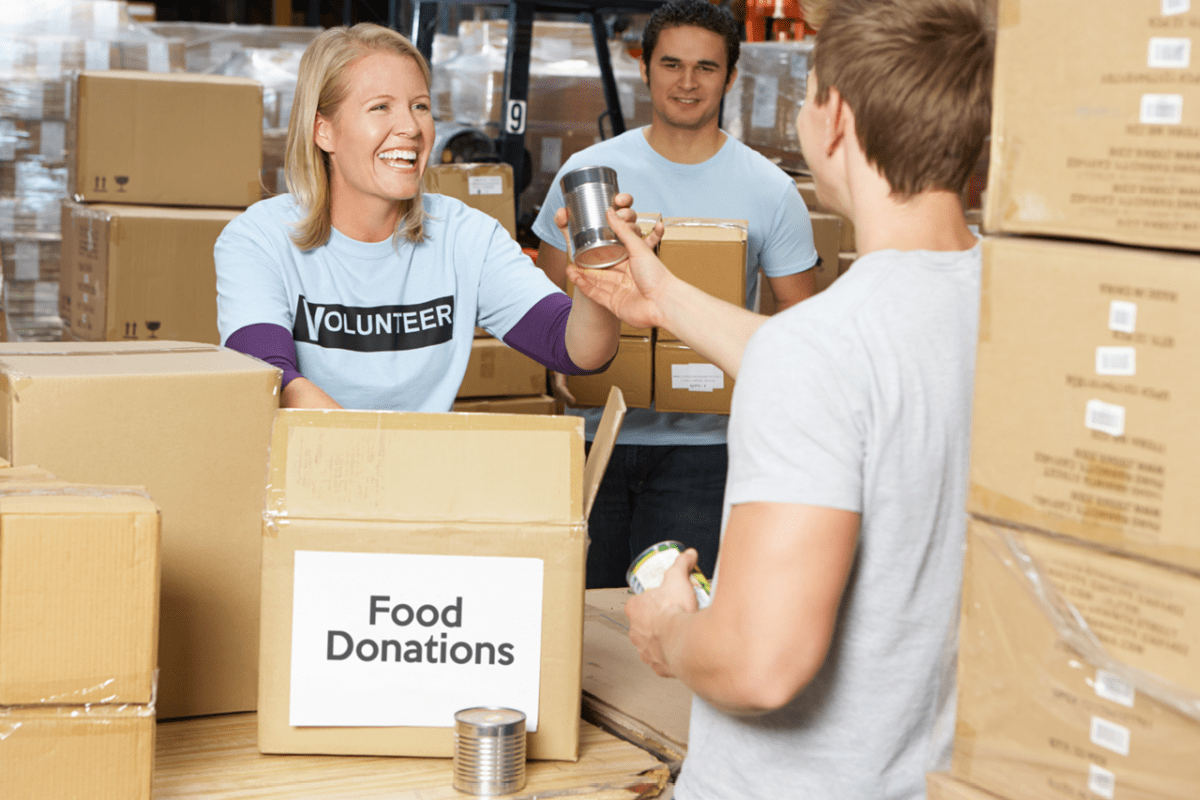11 Ways to Volunteer Your Time and Help Change Lives
September 2018

Do you feel a personal responsibility to help others? Randy Lewis, author of “No Greatness Without Goodness,” claims that all people, including businesses, have the responsibility to make the world a better place. In his case, he spearheaded a Walgreens initiative in the United States to hire the disabled. In the five years following his initiative, similar programs were sparked across America, Europe and Australia.
While some leaders and companies receive considerable publicity and well-deserved accolades for charitable work, there are hundreds of thousands of regular Australians – your friends and neighbours – who donate to programs to make the world a “kinder and gentler place.” In fact, around 80% of Australian’s gave in total $12.5 billion to charities and nonprofit organisations (NPOs) over 12 months in 2015-16*. These activities are sponsored by churches, civic organisations, schools, and charities, with services ranging from social services, domestic violence, homelessness to children’s and disability services. But despite the ongoing success of such efforts, programs always need volunteers and financial support.
Why Volunteer?
Nobody makes it through life entirely on his or her own merits, even if assistance is not obvious. As a consequence, everyone has a debt to repay – and a reason to give back.
In addition to fulfilling a responsibility, there are many benefits of charitable giving – primarily, it makes you happier. In fact, a Harvard Business School study confirmed that “happier people give more and giving makes people happier, such that happiness and giving may operate in a positive feedback loop (with happier people giving more, getting happier, and giving even more).”
While cash is always accepted in groups serving the needy, time and effort is just as important, if not more so. Plus, giving of your time, energy, and effort provides you with immediate feedback as to what your contribution means to those receiving it.
Give Back to the Community
Australians have a great capacity to accept and face challenges head-on. In an urgent appeal to assist drought affected farming families , a surge of people responded and began volunteering like never before. Volunteering is a win-win for all parties involved. Those who receive help are grateful for the help, and volunteers learn that helping others makes them feel better. Consider the following as ways you can start volunteering and pay your good fortune forward.
1. Offer to Help Family
In the hectic lifestyle of the 21st century, the needs of family members are often overlooked. Parents busy raising their own children may forget the plight of their own parents, assuming they are capable of taking care of themselves. Many adult children presume their parents will speak up if they need anything. This is not always the case, especially when Granddad or Grandma have been independent for years. Older people – parents, aunts and uncles, long-time family friends – are often reluctant to share their growing frailty, loneliness, or isolation with their children.
Caring for elderly parents may be necessary, so consider the needs of your own family members first. Drop by for coffee on a Saturday morning, mow the yard, or accompany elderly parents on a shopping trip. Invite them to your child’s soccer games or other family activities. Provide an inexpensive computer with access to email and Facebook (and lessons to learn the new technology), or schedule regular visits to brighten their day.
2. Volunteer at Your Local School
Educators are overworked, stressed, and disillusioned about the educational infrastructure – and they need help. Despite knowing that schools work best when the community is actively involved, too many parents and community members believe it’s someone else’s responsibility to solve the problems of education.
Children need role models and people who care about their lives and behaviour. Whether you read stories to elementary school students, monitor outdoor activities, chaperone field trips, or spend a Saturday beautifying the school grounds, your efforts will be recognised and appreciated. Moreover, you can make an investment that will pay dividends in the future.
3. Organise a Garage Sale for Charity
If your talents lie in business, administration, or marketing, consider organising a garage or car boot sale for your community, dedicating the proceeds to a local charity. Almost every household has electronics, furniture, clothes, or equipment that can be donated because they’re no longer in use. These items have value and can be recycled to those who will use them again.
4. Visit a Senior Centre
Too many nursing homes are turned into dumping grounds for older people whose families are gone or are unavailable, and many residents are desperate for conversation and connections with people outside the center. An hour or two a week can make a huge difference in the attitude and outlook of the residents, and you may learn something about life from those who have already traveled the journey before you.
5. Coach or Manage a Local Youth Sports Team
The old saying, “Idle hands are the Devil’s workshop,” is especially true for children and teenagers. Playing sports teaches kids teamwork, responsibility, and the joy of being physically fit.
Unfortunately, many kids don’t have the opportunity to participate in sports because there aren’t enough coaches or assistants. There are openings in almost every sport in every community for compassionate teachers and volunteer coaches. While some experience is helpful, it’s not always essential for you to be a good youth football coach.
6. Tutor a Student
Students include people of all ages, not just children. Teaching literacy to adults can change their lives. Helping someone learn English can expand his or her horizons, able to further interact in the broad community.
Academic subjects are not the only ones that need tutors – introducing and teaching others about computers and the Internet is needed everywhere, especially in the senior community. Life skills, such as cooking, sewing, and home repairs, are in demand for all ages.
7. Fix and Serve Meals
Despite Australia’s overall prosperity, the homeless, the unemployed, and the poor often go hungry – 3.6 million people report having experienced food insecurity in the last year, 652,000 people receive food relief from Foodbank agencies, every month – 27% of those are children (216,000). Yet still, every month 65,000 people are turned away because of food shortages (14,600 of these are children). Foodbank is a non-denominational, non-profit organisation which acts as a pantry to the charities and community groups who feed the hungry.
8. Serve on a Community Board
Charities and community service organisations often compete with other businesses for the community’s attention and support. In many cases, nonprofits are at a distinct disadvantage, lacking the resources to attract, compensate, and retain top-flight executive staff and administrators. If your talents are administrative, or if you have executive or board experience, your knowledge and insights could be welcomed at not-for-profit, community-based organisations.
9. Be a Good Neighbour
Before the widespread use of air conditioning, residents of a community were more likely to spend time outside getting to know one another, rather than retreating inside to escape the heat. Now it’s common for neighbors not to know one another; rather, people simply return home from work each night and head inside.
Participation in a neighbourhood organisation builds a sense of community and provides valuable services to those within the neighbourhood. Many neighbourhood associations have community watch programs, assist with neighbourhood beautification and park projects, and represent the community to local government officials. Knowing your neighbours increases a sense of personal security and connection to those around you.
10. Volunteer at a Hospital
Hospital volunteers provide crucial support to hospitals, and also offer comfort and convenience to patients, families, and visitors. Volunteer opportunities include everything from manning information booths, to sitting with patients or working with children. Duties might involve helping with food service or pushing wheelchairs. Hospitals have a wide variety of volunteer needs that are suitable for all ages.
** Giving Australia 2016 Report
Final Word
If you’re still on the fence about volunteering, or you’re not sure you have the time or energy necessary, consider the five-year, multi-institutional study that proved giving and being unselfish can protect your health and prolong your life. Every day that goes by without helping another is an opportunity missed. Recognise that others helped you achieve your merits, and now you have the opportunity to pay them back while paying the effort forward.
How else can you pay success back while paying it forward for future generations?



